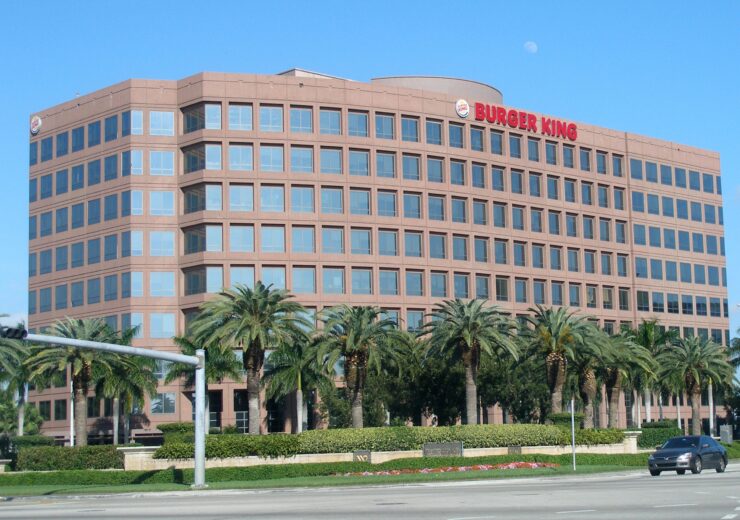The chemicals are used for grease-resistant food packaging which causes high cholesterol, kidney-liver problems, low birth weight and cancer

Burger King headquarters in Miami, Florida, USA. (Credit: Coolcaesar at English Wikipedia)
Burger King’s parent company Restaurant Brands International (RBI) announced its decision to remove per- and polyfluoroalkyl substances (PFAS) in food packaging used in its restaurants by 2025.
The chemicals are used to make the food packaging grease-resistant resulting in high cholesterol, kidney-liver problems, low birth weight and cancer.
RBI, which also owns Hortons and Popeyes, highlighted the link between PFAS exposure and more severe Covid-19 symptoms, as well as reduced vaccine effectiveness.
The company said PFAS, nicknamed forever chemicals, do not degrade and can build up in human bodies and the environment.
When used in packaging, PFAS can leak into the food, and subsequently into human bodies when consumed. When the packaging is thrown away, the toxins leech into land and drinking water.
Safer Chemicals, Healthy Families and Toxic-Free Future, two advocacy groups, examined food packaging from three fast-food restaurants, including Burger King, and three health food businesses in 2020.
They found that the packaging of all six businesses had been treated with PFAS.
The three health food chains pledged already to ditch PFAS-treated food packaging and Burger King is the third and last fast-food chain to take action.
Commenting on the Burger King’s commitment, US PIRG Education Fund’s Zero Out Toxics advocate Emily Rogers said: “We applaud Burger King for taking this step to protect its consumers and urge other restaurants to follow suit.
“Burger King’s commitment will prevent their customers from unknowingly ingesting PFAS chemicals while they are enjoying their breakfast, lunch or dinner.
“With virtually all Americans already having PFAS in their blood, there’s no time to waste in stopping the use of PFAS wherever possible.
“After all, using PFAS to prevent greasy fingers isn’t worth the risk to our health or the environment that these toxic ‘forever chemicals’ pose.”
